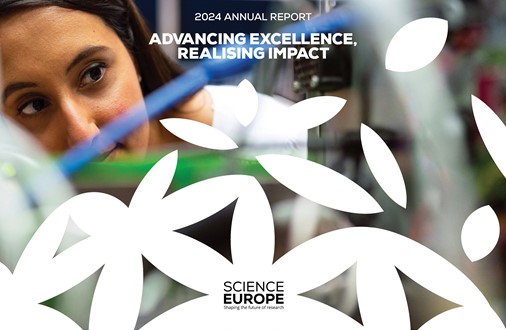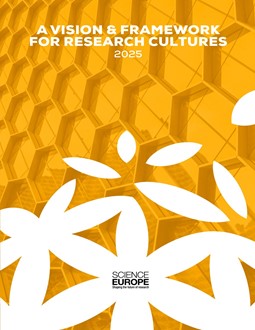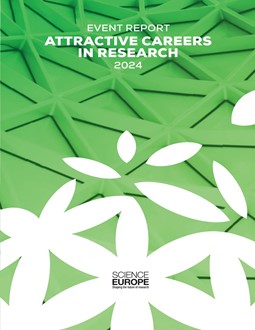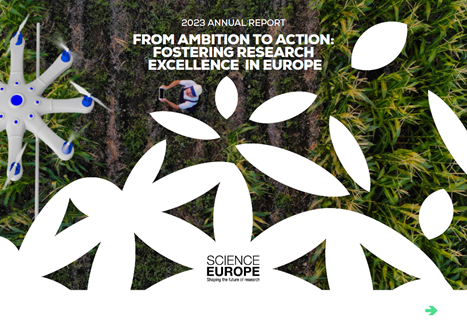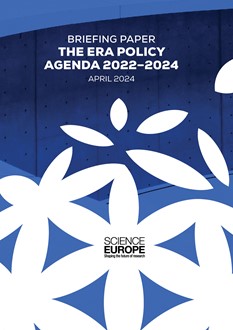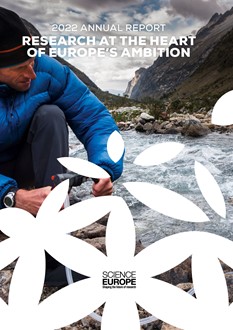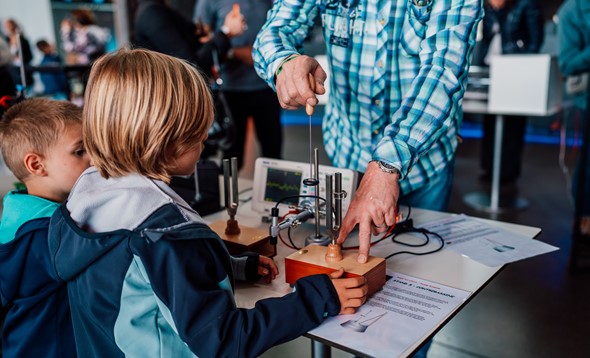
-
Share on
First of Three Workshops on Brain Circulation
The first Workshop of a cycle of three events dedicated to Widening Participation and Spreading Excellence took place on 24 May. A main line of Science Europe is to promote ‘Brain Circulation’, as opposed to the ‘Brain Drain’ phenomenon.
The workshop cycle, in line with Science Europe’s work plan for 2022, aims to draw attention to the benefits, challenges and opportunities of the instruments for widening participation and spreading excellence, both for the so-called widening and non-widening countries. It will also be a good opportunity to reflect on improving brain circulation in Europe.
The workshops on Widening Participation and Spreading Excellence are organised by Science Europe in collaboration with the ad hoc Task Force generated within the Working Group on Horizon Europe, including ELKH, SNSF, FCT, NCN, ETAg and UEFISCDI.
Widening Workshop I
The first Widening Workshop, restricted to SE Members and held online on 24 May, provided information on the use of European funding instruments for widening and spreading excellence within Horizon Europe, with a focus on how to guide the process of project submission and implementation.
Two keynote speakers provided an overview: Stefan Weiers, Head of sector of the Widening, ERA & Research Infrastructure Programming, European Commission RTD, and Katalin Alföldi, Policy Officer and Global Networking Task Leader, European Cooperation in Science & Technology (COST), discussed the opportunities, challenges and effectiveness of the widening instruments. Special attention was paid to the attractiveness of this part of the Framework Programme for both ‘Widening’ and ‘Non-widening’ countries. This section also included a focus on COST, which emphasised the programme and the implementation of COST Actions.
The interactive section of the workshop that followed, included four presentations of good examples and success stories focusing on benefits, success factors, challenges and recommendations. The presentations showcased different tools and reported experiences on various aspects, highlighting the most important elements of the preparation, implementation and results of widening/spreading projects.
The projects presented were the following:
- CETOCOEN Excellence project (Teaming) – proposed by SNSF, Switzerland
- SUPERMAT and COST CA15102 Critical Raw Materials under Extreme Conditions (Twinning) – proposed by UEFISCDI, Romania
- ERA Chair i3S Synapse Biology group – proposed by FCT, Portugal
- Big Data Applications for Cyber-Physical Systems in Production and Logistics Networks (Twinning) and Centre of Excellence in Production Informatics and Control (Teaming) – proposed by ELKH, Hungary
Finally, Lidia Borrell-Damián, Secretary General of Science Europe, and Ülle Napa, Head of the Estonian Liaison Office for EU RTD in Brussels, extracted main lessons to be learned from the first workshop:
- The importance of building capacity at national level to present and execute high-quality projects, as well as to identify and effectively build synergies with complementary funds, was stressed. Many tools related to widening participation and spreading excellence are available, but the expertise is not always there.
- The added value of COST as a scheme providing expertise and facilitating capacity building to prepare successful Horizon Europe applications was emphasised.
- Brain circulation, excellence, and academic freedom were acknowledged as factors stimulating the participation of researchers, as were multidisciplinary and inclusive approaches are key factors of success.
- The need for possible additional policies to facilitate the engagement of Ukrainian organisations was also highlighted.
Widening Workshop II
The upcoming second Workshop (27 September, online, restricted to Members) will focus on national instruments, their synergies, use of European Structural and Investment Funds, and Partnerships. The main goal is to share good examples by allowing an interactive exchange of views and experiences among Science Europe members.
The main messages from the first and second Workshops will be the basis to prepare a policy position addressed to European political authorities at an event in the framework of the Czech Presidency of the Council of the EU.
Widening Workshop III
The third Workshop will be organised as a hybrid event on 10 November in partnership with Science|Business in the framework of the Czech Presidency of the Council of the EU. As a political event, the third workshop will involve high-level policy makers and politicians, as well as national authorities, and will be open to a wider audience. The aim will be to take stock of the current state of play of ‘widening’ policies and to encourage stakeholders to engage in further development of policies and actions to promote brain circulation in Europe. More details on time, location, and format will be shared.








